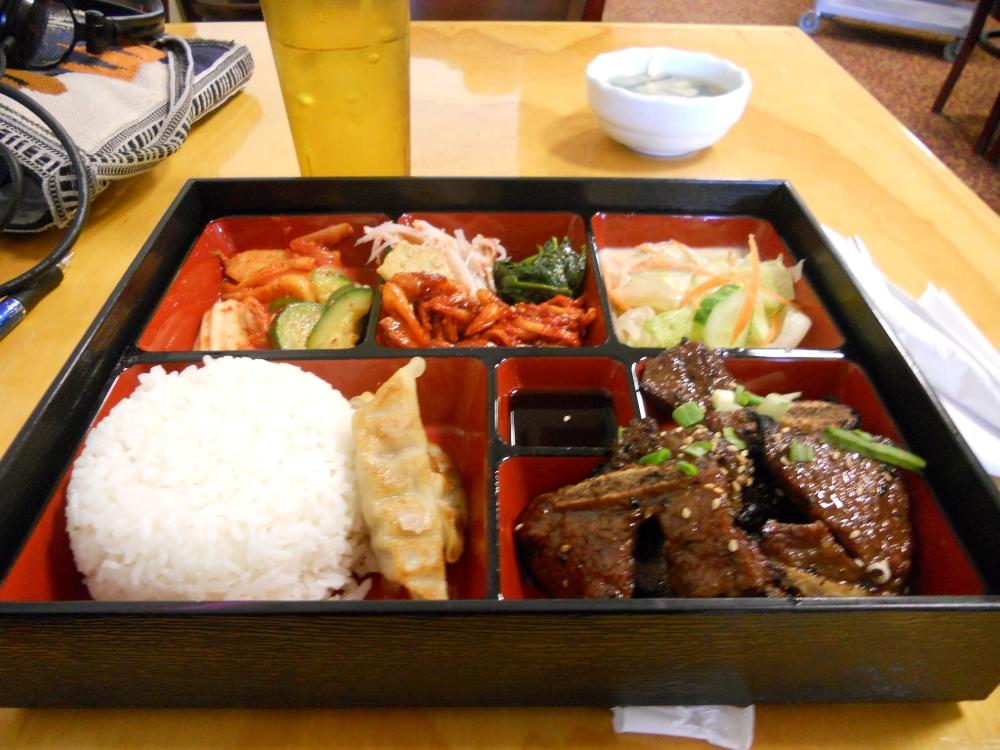
Section Branding
Header Content
Kia's Impact Wide In West Georgia
Primary Content

Two years ago, Korean automaker Kia opened a plant in West Point, near the Alabama border. The plant employs 3,000 people. But its economic impact is much wider, extending to supplier companies and other businesses catering to Kia and its employees.
On Lafayette Parkway across from the LaGrange Mall there are a number of Korean businesses. There’s a Korean bakery, and next store a Korean restaurant. A pool hall has large Korean lettering out front and next door is a Korean accounting office.
Inside the restaurant on a recent afternoon, a dozen Korean auto workers in work gear huddle over steaming lacquered bowls of traditional dishes.
Some of them work for Sewon America. With 800 employees, it’s the largest Kia supplier in the LaGrange area, about a dozen miles from the plant.
Sewon makes metal safety parts for car door panels that blunt the force of a crash. Ken Horton is a senior manager there. In an interview at the plant, he says soon he’s going to need more employees.
“I anticipate anywhere from 100 to 200 more, probably in the next six to eight months,” he said.
Sewon America opened two years ago. It’s one of about 60 suppliers straddling Georgia and Alabama, where Kia’s sister company, Hyundai, has a car plant.
The supplier network that has sprung up is part of what makes Kia’s presence in west Georgia unique. Horton says automakers like to have their suppliers nearby so they can adjust production schedules at any time.
“Kia is about 11 to 12 miles away and our job is to get the product to Kia just in time -- when they want it, when they ask for it, in the right quantity, defect-free,” he said.
Over at Kia, the plant now runs three shifts a day and churns out three models, including the Optima.
Kia announced plans to build the plant in 2006. As incentives, the state spent about $165 million to purchase and improve the land for the plant, and build roads. Kia is also receiving $130 million in property tax abatements.
In exchange, the company pledged to invest $1 billion in the plant and create 2,500 jobs, obligations Kia says it has met.
Yet unemployment in the area hovers around 11 percent.
The automaker’s arrival came as welcome news to an area where textile plant closures have been the norm for years.
And Randy Jackson, vice president of Kia’s Georgia operations, says the plant has provided jobs to some of those laid off at other companies.
“There have been a lot of closures in this region,” he said in an interview at the plant this month. “I don’t know what the numbers are but I know at one time those numbers were falling much faster than we could add back jobs. But I will say, we have been able to add between ourselves and our suppliers well over 10,000 jobs, which is a tremendous shot in the arm for this region.”
More expansion may be on the way as Hyundai suppliers in Alabama look to open second plants in the U.S.
One success is Mando, a Hyundai supplier that plans to build a plant next door in Meriwether County.
More businesses mean more people. In downtown LaGrange, a jewelry store window sports a neon sign in Korean, and a banner advertises the LaGrange Korean School.
James Yu, pastor of New Heaven Baptist Mission Church, says Kia and Kia supplier company employees now make up several growing congregations.
“We have here, in our Korean community here, even though it’s small, we have already six Korean churches worshiping here in the LaGrange area,” he said outside his church.
Back at Kia, Jackson says people buying Optimas, Sorentos and other Kia models are now coming back for repeat purchases. Local officials say that’s good news not just for Kia plant employees but for the entire region.
Tags: West Point, KIA, LaGrange, Kia Motors West Point, automakers, Korean culture, Korean businesses
